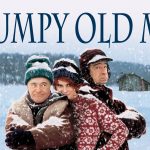The King’s Speech (2010)
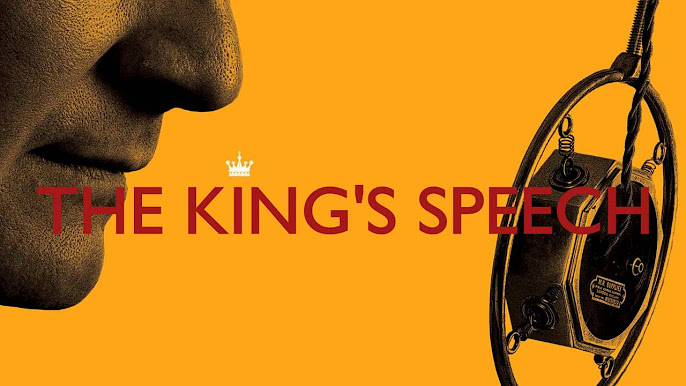
The King’s Speech is a 2010 British historical drama film directed by Tom Hooper and written by David Seidler. The film is based on the true story of King George VI, who overcame his debilitating stammer with the help of an unconventional speech therapist, Lionel Logue. Played by Colin Firth, King George VI’s personal journey toward overcoming his speech impediment forms the heart of the film. Geoffrey Rush portrays Lionel Logue, the speech therapist who helps the King find his voice during a critical time in British history. The film was a commercial and critical success, winning several Academy Awards, including Best Picture, Best Director, and Best Actor for Colin Firth.
The plot of The King’s Speech centers on the struggles of Prince Albert, Duke of York (Colin Firth), who is thrust into the role of King George VI after his brother, King Edward VIII, abdicates the throne. Faced with the pressure of becoming king and leading the nation through World War II, King George VI grapples with his severe stammer, which makes public speaking and fulfilling his royal duties nearly impossible. Despite his royal status, he feels deeply insecure and embarrassed by his speech impediment. Desperate for help, he turns to Lionel Logue, an Australian speech therapist with unconventional methods.
Colin Firth delivers a remarkable performance as King George VI, capturing the inner turmoil and emotional vulnerability of a man who must overcome his greatest personal challenge. Firth brings a sense of humanity and empathy to the character, showing the King’s emotional struggles as he faces the daunting task of addressing the nation during a time of crisis. His portrayal is powerful, and it highlights both the King’s insecurities and his determination to conquer his fears. Firth’s performance earned him widespread acclaim and an Academy Award for Best Actor.
Geoffrey Rush’s portrayal of Lionel Logue complements Firth’s performance perfectly. Logue is an eccentric and unorthodox therapist who initially appears to be an unlikely candidate to help the King. His methods, which include breaking social conventions and forging a more personal relationship with his royal patient, contrast sharply with the formal, reserved nature of the monarchy. Rush brings warmth, humor, and a sense of wisdom to the character, making Logue both an essential part of the King’s success and a loyal, compassionate friend. The chemistry between Firth and Rush is the film’s emotional core, and their evolving friendship adds depth to the story.
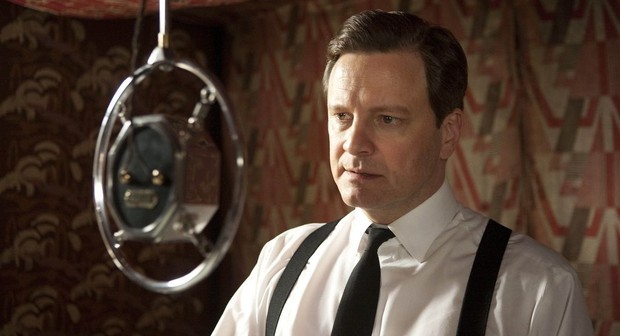
The film is also notable for its strong supporting cast, including Helena Bonham Carter, who plays Queen Elizabeth, the supportive wife of King George VI. Bonham Carter gives a subtle yet powerful performance, portraying the Queen’s role as a loving and steadfast partner who stands by her husband through his personal struggles. The film also features strong performances from Guy Pearce as the charming but ultimately selfish King Edward VIII and Timothy Spall as Winston Churchill. These supporting characters help to create a rich and historically grounded narrative.
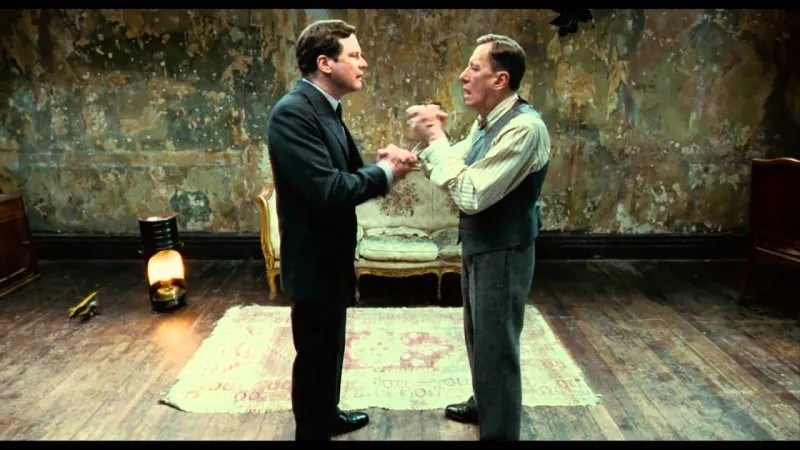
One of the key themes in The King’s Speech is the importance of overcoming personal barriers to serve a greater cause. King George VI’s journey to overcome his speech impediment mirrors his rise to the throne and his eventual leadership during World War II. His transformation, from a man who felt powerless in public speaking to one who delivers a stirring wartime speech, represents not just a personal victory but also a triumph for the nation. The film beautifully highlights the power of self-belief, perseverance, and the importance of having the right support in times of crisis.
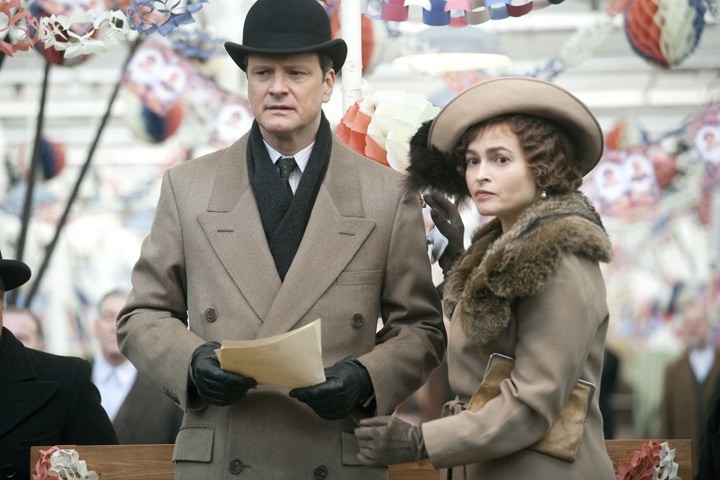
In conclusion, The King’s Speech is a deeply moving and inspirational film that combines historical events with personal growth. With exceptional performances, particularly from Colin Firth and Geoffrey Rush, and a compelling story about overcoming adversity, the film resonates with audiences around the world. The film’s exploration of friendship, courage, and leadership, set against the backdrop of the early days of World War II, makes it a timeless and powerful cinematic experience. The King’s Speech stands as a testament to the human spirit and the impact of finding one’s voice, both literally and metaphorically.




